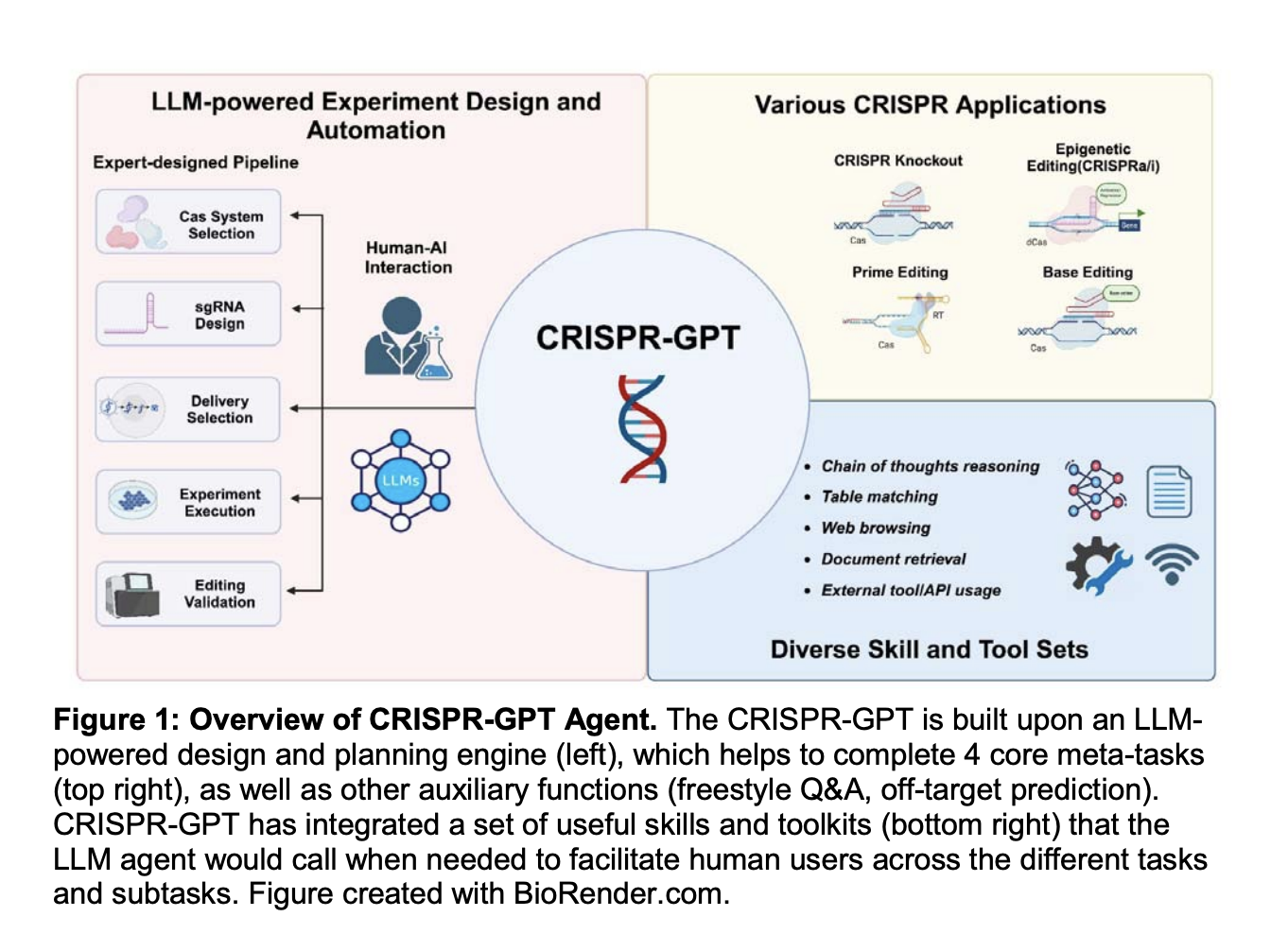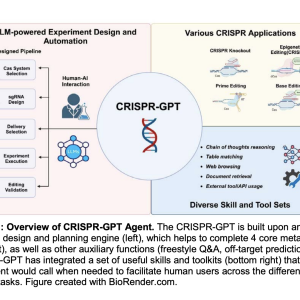

Gene editing is a cornerstone of modern biotechnology. It enables the precise manipulation of genetic material, which has implications across various fields, from medicine to agriculture. Recent innovations have pushed the boundaries of this technology, providing tools that enhance precision and expand applicability.
The primary challenge in gene editing lies in the complexity of designing and conducting precise genetic modifications. The process demands a deep understanding of biological systems and meticulous planning to avoid unintended consequences. Traditional approaches often necessitate a high level of expertise and can be time-consuming and error-prone, posing significant barriers to rapid advancement.
Existing research in gene editing includes foundational technologies like CRISPR-Cas9, which is known for its precision and adaptability. Enhancements such as CRISPR activation/interference (CRISPRa/CRISPRi) and innovations like prime editing and base editing have refined the ability to modify genetic sequences without causing double-stranded breaks. The integration of Large Language Models (LLMs) with these techniques, seen in specialized tools like ChemCrow and Coscientist, has facilitated automated experimentation, leveraging domain-specific databases and computational tools to advance the efficiency and accuracy of genetic research.
Researchers from Stanford University, Princeton University, and Google Deepmind have introduced CRISPR-GPT, a tool that merges CRISPR technology with advanced LLMs such as GPT-4. This integration facilitates the automation of gene-editing experiments, enabling precise genomic modifications with reduced complexity. The unique aspect of CRISPR-GPT lies in its ability to synthesize domain-specific knowledge with LLMs’ computational efficiency, streamlining the experimental design process in ways previously unachievable with general-purpose LLMs.
CRISPR-GPT employs a methodology integrating CRISPR technology with computational models based on LLMs, specifically GPT-4. The system utilizes a comprehensive dataset that includes CRISPR system efficiencies and guide RNA (gRNA) sequences, which are vital for optimizing the selection and design processes. The framework of CRISPR-GPT consists of multiple modules that automate tasks such as CRISPR system selection, gRNA design, and method delivery recommendations. Each module is powered by LLMs that have been fine-tuned with domain-specific biological data to ensure high accuracy and efficiency in gene-editing experiments.
CRISPR-GPT demonstrated marked improvements in gene-editing experiments, where it increased the accuracy of target gene modifications by up to 30% compared to conventional methods. In validation tests, CRISPR-GPT achieved a specificity rate exceeding 95%, with a significant reduction in off-target effects. The system also reduced the time required to design and plan experiments by approximately 40%, streamlining the workflow for researchers and instilling confidence in its effectiveness. These results highlight CRISPR-GPT’s precision and efficiency in enhancing the precision and efficiency of gene-editing protocols.
In conclusion, the research introduces CRISPR-GPT, which innovatively combines CRISPR technologies with advanced LLMs. It significantly enhances the efficiency and accuracy of gene-editing experiments. By automating complex design processes and considerably reducing off-target effects, this tool makes sophisticated genetic engineering more accessible and reliable. The success of CRISPR-GPT in improving experiment outcomes underscores its potential to facilitate rapid advancements in medical research and treatment development, marking a significant step forward in applying AI-driven solutions in genetics.
Check out the Paper. All credit for this research goes to the researchers of this project. Also, don’t forget to follow us on Twitter. Join our Telegram Channel, Discord Channel, and LinkedIn Group.
If you like our work, you will love our newsletter..
Don’t Forget to join our 40k+ ML SubReddit
The post This AI Paper from Princeton and Stanford Introduces CRISPR-GPT For Innovative Gene-Editing Enhancements appeared first on MarkTechPost.